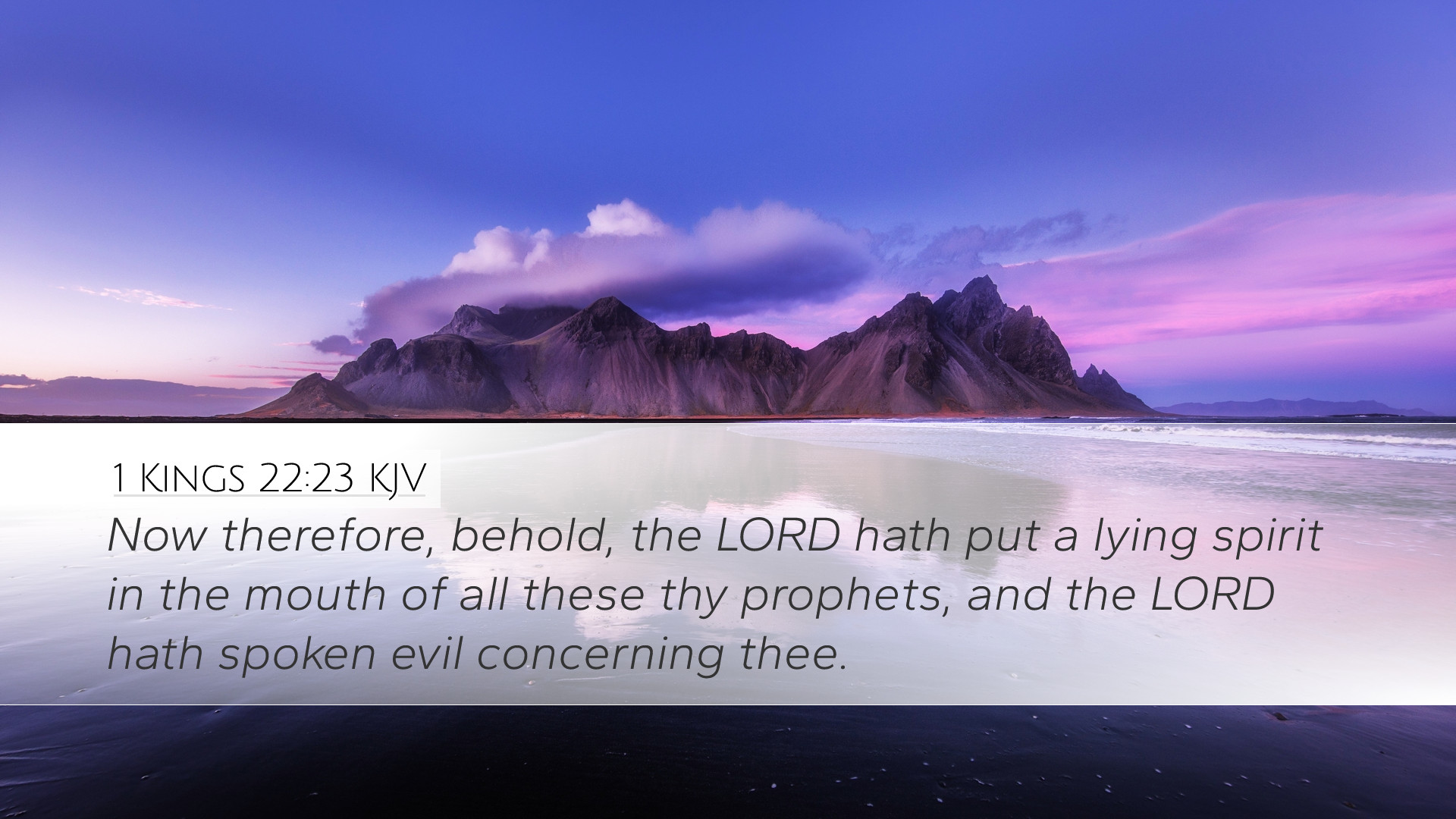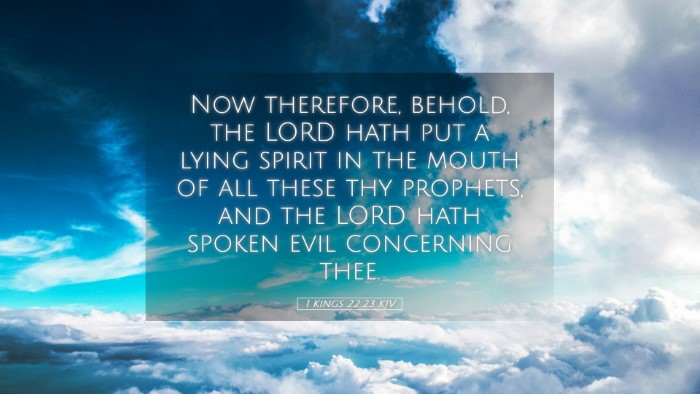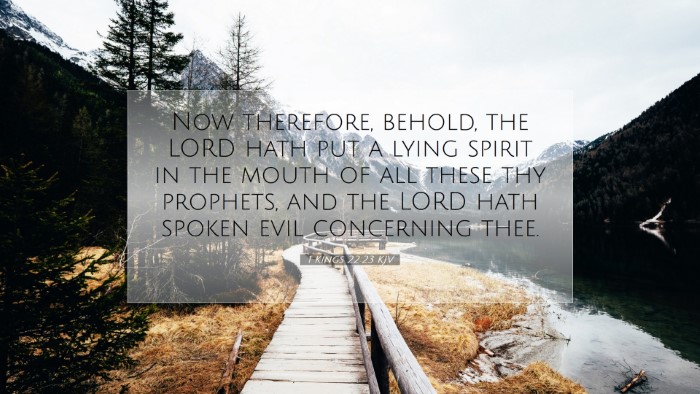Bible Commentary on 1 Kings 22:23
Verse: 1 Kings 22:23 - "Now therefore, behold, the Lord hath put a lying spirit in the mouth of all these thy prophets, and the Lord hath spoken evil concerning thee."
Introduction
This verse captures a significant moment in the narrative of 1 Kings, where the interaction between divine will and human agency is brought to the forefront. Herein lies the prophecy from Micaiah concerning King Ahab, who had assembled the prophets of Baal for counsel on entering battle against Ramoth-Gilead. It serves as a critical commentary on the integrity of prophetic messages and the sovereignty of God in deliberating truth amid deception.
Contextual Analysis
The backdrop of this passage involves King Ahab seeking the counsel of his prophets before going to war. The prophets, influenced by a lying spirit, assure him victory. Micaiah, however, confronts this misleading consensus with the truth from God, illustrating the tension between false prophecy and divine revelation. This sets the stage for a profound exploration of divine judgment and the nature of truth in prophetic messages.
Theological Insights
- Sovereignty of God: The verse clearly indicates God's control over the events and the prophetic mouthpieces. It shows that God can use even a lying spirit to achieve His purposes, emphasizing that nothing escapes His authority.
- The Nature of Prophecy: A commentary from Matthew Henry highlights that prophecies must align with God's character and truth. Those who propagate falsehood, even under the guise of divine counsel, face grave consequences as demonstrated by Ahab's fate.
- The Consequences of Sin: Albert Barnes notes that Ahab's persistent disobedience and alliance with evil led him to this fate. The lying spirit in the prophets serves as a divine consequence of Ahab's unrepentant heart.
- The Reality of Spiritual Warfare: The lying spirit symbolizes the ongoing spiritual battle. Adam Clarke emphasizes the existence of falsehoods that exist alongside divine truth which believers must discern in their own lives.
Character Analysis
King Ahab: Ahab's character is pivotal in understanding this verse. His reliance on false prophets reflects a heart disconnected from God's truth, an inclination towards pleasing the majority rather than seeking divine counsel. The indictment here is aimed not just at Ahab, but at all who turn from God's voice.
Micaiah: Micaiah stands in stark contrast to the other prophets. His willingness to convey the difficult, unpopular truth speaks to the integrity that is often required of God's messengers. Micaiah's boldness illustrates a commitment to God's truth, even in the face of hostility.
Lessons for the Church
- Discernment: The need for discernment is essential in a world filled with competing messages. Just as King Ahab faced misleading guidance, Christians today must be equipped to identify falsehoods that seek to compromise their faith.
- Courage to Speak the Truth: Like Micaiah, believers are called to speak the truth of God’s word, even when it contradicts popular opinion. This requires spiritual courage and a deep commitment to God's calling.
- Understanding Divine Judgment: The nature of God’s judgment as depicted in this passage underscores the importance of living in a manner that is pleasing to God. Believers bear the responsibility to align their hearts with the truth of Scripture.
Conclusion
1 Kings 22:23 serves as a profound reminder of the complexities of divine governance and human agency. The narrative implores readers to reflect on their fidelity to God's truth against the backdrop of a world that often embraces deception. The insights gleaned from this text encourage pastors, theologians, and scholars alike to root their teachings in the unwavering truth of Scripture and to guide their communities toward discernment and truthfulness in their walk with God.


